Healthier homes – what can Barnet residents do?
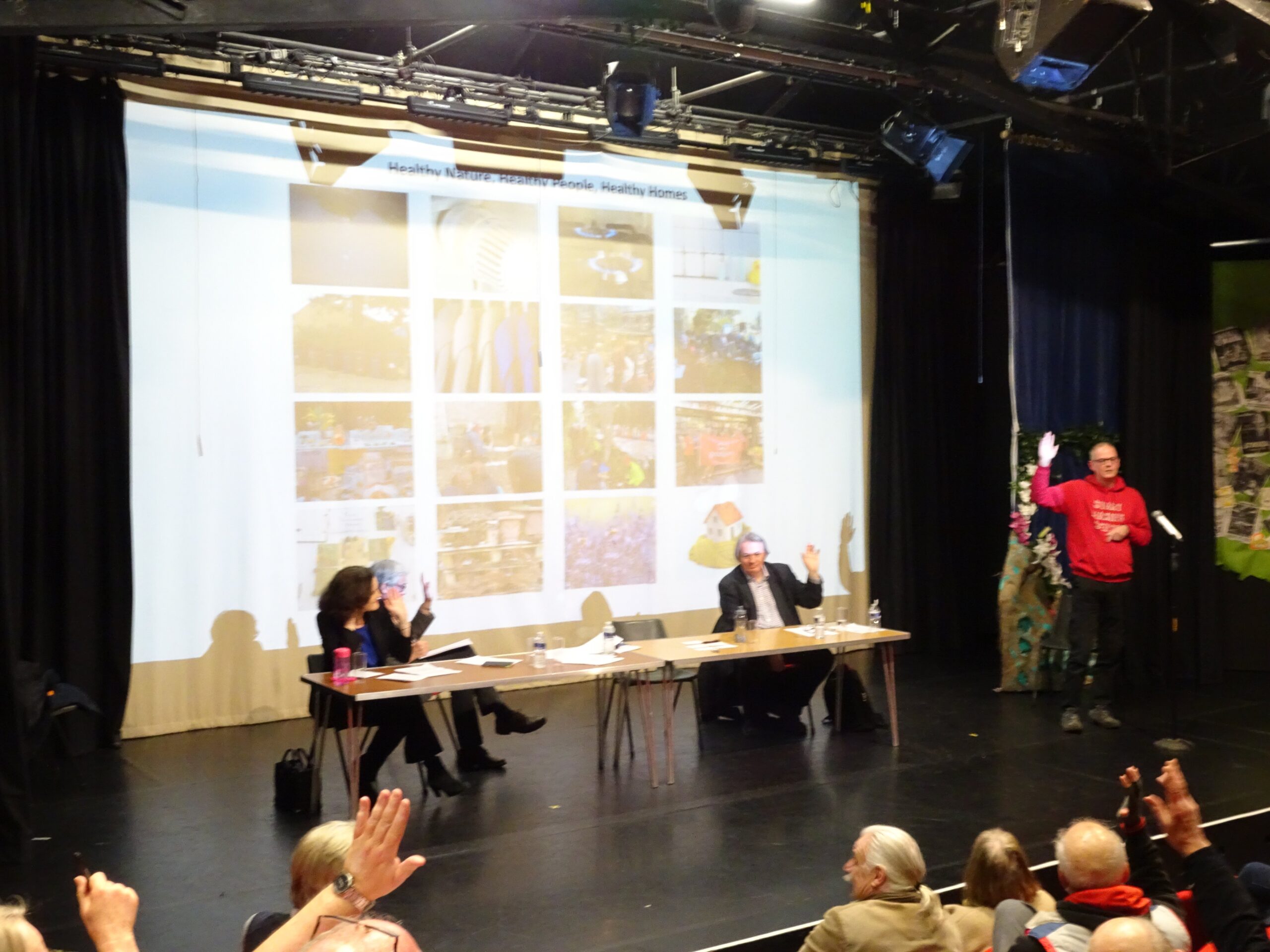
Despite the pace of new building in Barnet, most of our existing homes fall well below the environmental standards we need to meet to avoid climate catastrophe. At last week’s Barnet Society debate on Better Homes for Barnet, Dave McCormick of Barnet Friends of the Earth gave advice on what residents can do to save energy, minimise waste and make Barnet more sustainable. Below is a summary of Dave’s presentation.
We can probably all agree that we want new housing developments to be “healthy homes”, but are our existing homes healthy?
Homes in Barnet are the source of 48% of carbon emissions and most of the existing housing stock was built in the last century when climate change and biodiversity loss were less prominent issues. Unhealthy homes are homes that can harm our health and the environment – making our homes healthier can lead to healthier people, communities, and nature. So, what are the issues and what can we do?
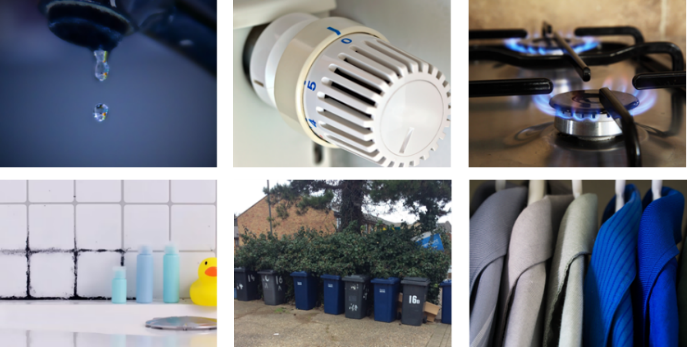
Barnet is within a water-stressed region of the UK as we are extracting water from our environment faster than nature is replenishing our water resources. To avoid water shortages our water companies need to reduce leaks from pipes and we need to reduce the amount of water we each use per day by about a third. Shorter showers, turning off the tap when brushing teeth, using a bucket rather than a hose when washing the car are all simple things that we can do to reduce consumption. Fixing dripping taps and leaky loos takes a bit more effort and costs some money but can make a big difference. And when legislation for water labelling is finally introduced, we will be able to make better informed decisions about what products we buy.
Over 70% of our homes have gas central heating – a major source of emissions. We need legislation to make it easier to expand local renewable community energy, and help to change how we heat our homes. While we wait for this, we can improve insulation, turn down the thermostat and turn off radiators in unused rooms. All will help reduce our energy bills and our emissions.
Cooking on gas hobs contributes to carbon emissions and indoor air pollution that can harm our health. Switching to induction electric hobs is a good solution but meanwhile boil water in a kettle then put it into a saucepan for cooking and use saucepan lids to reduce gas use. When cooking, make sure the kitchen is well ventilated to help disperse pollution.
If we manage to stop our homes leaking heat we then have to ensure that lack of ventilation doesn’t lead to mould which can damage our health. Indoor air quality is becoming a growing area of concern.
Our households create a lot of waste and in Barnet, less than 30% of it is currently reused, recycled or composted. Rather than focusing on more frequent waste collection, the starting point should be to reduce the amount of waste and compost as much as possible at home (hot composters are good for this).
We all buy a lot of stuff – buying less can help reduce waste and reduce the emissions and water used in making the things we buy.
Food production is a significant source of emissions and freshwater use. Halving our meat and dairy consumption can cut agriculture emissions by between 20-50%. A vegan diet isn’t for everyone but we could all try to eat less meat, eat seasonable local produced food and grow our what we can in our gardens or windowsills.
There is lots we can do at home. We can also encourage others to act and support (and ask our councillors and politicians to support) the following initiatives that are aiming to address the issues around Healthy Homes:
The Healthy Homes Act, Local Electricity Bill, United for Warmer Homes (a Friends of the Earth initiative with a local petition).
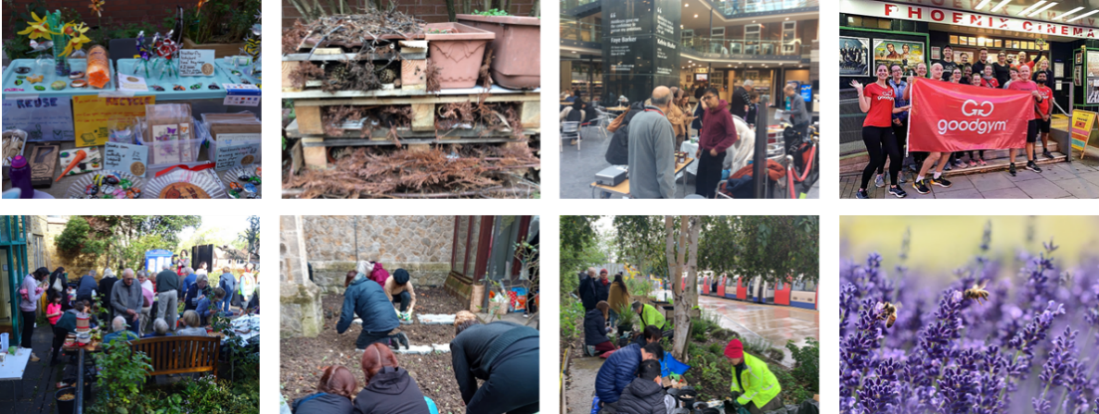
We face a climate and biodiversity crisis and across our Borough, there are many volunteer groups trying to inspire and educate residents to take simple steps to make our homes healthier, reduce emissions, consume less and protect and enhance nature.
Community gardening, such as Incredible Edible in New Barnet, helps people learn about growing food and plants, composting and bug hotels in a social setting that improves well-being. Projects to plant pollinator bulbs and seeds help improve local biodiversity and Goodgym helps people get fit while doing good.
Community events such as “eco-show and tell” share ideas and get people thinking about what sustainability means for Barnet. This year, East Finchley Community Festival in Cherry Tree Wood aims to replace use of diesel generators with green alternatives – something other parts of Barnet could learn from.
Community action can make a big difference to making our homes, our communities and nature healthier. To succeed, whether it is designing and building new homes or maintaining and improving existing homes, sustainability needs to be at the heart of all we do.
How can we put this into action in Chipping Barnet?
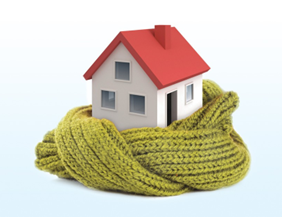
1 thought on “Healthier homes – what can Barnet residents do?”
Comments are closed.

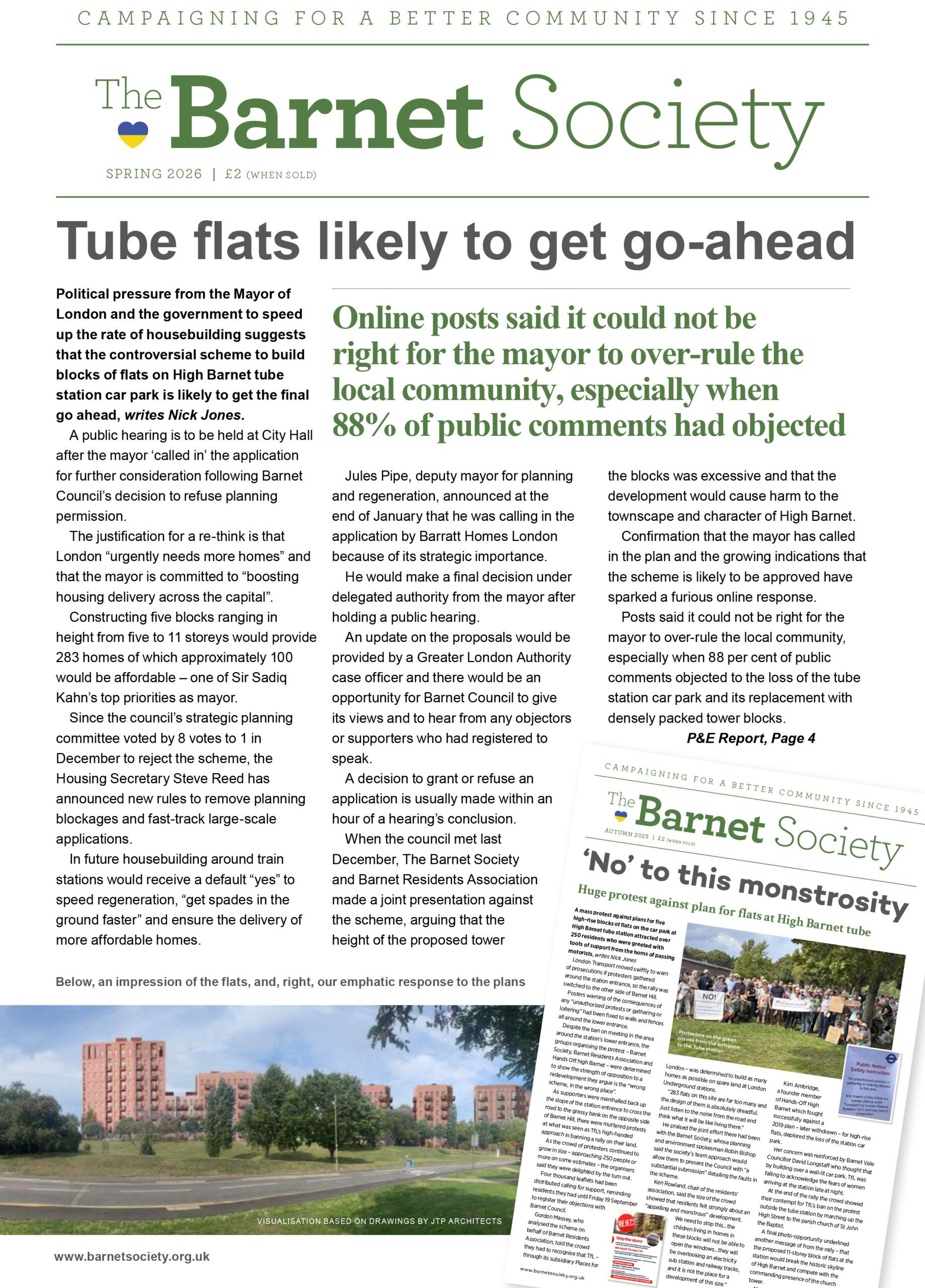
The Better Homes for Barnet event was interesting, thanks for organising and to all of the speakers. Also thanks to Dave for bringing up the impact of food and Incredible Edible Barnet. Now the growing season is upon us, we will be at the community garden on the second and fourth Saturdays each month from 10am until 12 if anyone wants to come and say hello!